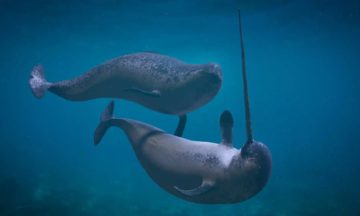PD Smith in The Guardian:
 Friedrich Nietzsche claimed that humankind was “a fantastic animal that has to fulfil one more condition of existence than any other animal”: we have to know why we exist. Justin Gregg, a researcher into animal behaviour and cognition, agrees, describing humankind as “the why specialists” of the natural world. Our need to know the reasons behind the things we see and feel distinguishes us from other animals, who make effective decisions without ever asking why the world is as it is.
Friedrich Nietzsche claimed that humankind was “a fantastic animal that has to fulfil one more condition of existence than any other animal”: we have to know why we exist. Justin Gregg, a researcher into animal behaviour and cognition, agrees, describing humankind as “the why specialists” of the natural world. Our need to know the reasons behind the things we see and feel distinguishes us from other animals, who make effective decisions without ever asking why the world is as it is.
Evidence of this unique aspect of our intelligence first appeared 44,000 years ago in cave paintings of half-human, half-animal figures, supernatural beings that suggest we were asking religious questions: “Why am I here? And why do I have to die?” Twenty-thousand years later, we began planting crops, revealing an awareness of cause and effect – an understanding of how seeds germinate and what to do to keep them alive. Ever since then, our constant questioning of natural phenomena has led to great discoveries, from astronomy to evolution.
But rather than being our crowning glory as a species, is it possible that human intelligence is in fact a liability, the source of our existential angst and increasingly apparent talent for self-destruction? This is the question Gregg sets out to answer in his entertaining and original book.
More here.
